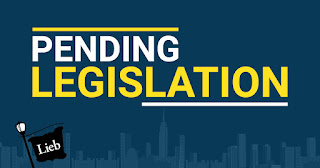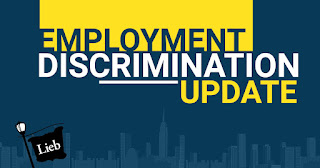Tuesday, April 19, 2022
Wednesday, January 13, 2021
According to Business Insider, Dollar General is paying their employees to get the COVID vaccine, but is that legal?
Back in 2017, the federal courts, in AARP v. EEOC, addressed the issue of paying employees for participation in wellness programs and found that both the Americans with Disabilities Act and the Genetic Information Nondiscrimination Act were violated because the incentives permitted rendered the programs not voluntary, as required by law. The incentive, at issue in the case, was "up to 30% of the cost of self-only coverage."
How does that comport with what Dollar General is now doing?
They are offering four hours of pay to their employees.
Is that too much to make participation voluntary?
Ironically, the Equal Employment Opportunity Commission is proposing a new regulation about this voluntary standard in the Federal Register for public comment. This new regulation proposes to change the 30% incentive limit (as addressed in the federal case above) to a de minimis incentive limit. In fact, the regulation gives examples of a permitted de minimis incentive, like a water bottle or modest gift card.
Isn't four hours of pay worth a lot more than a water bottle? Is Dollar General going to get sued for this program. What do you think?
Monday, June 29, 2020
The EEOC advised that antibody tests should not be used to make decisions about returning to the workplace and currently does not meet the Americans with Disabilities Act (ADA)’s “job related and consistent with business necessity” standard for medical examinations for current employees. This standard applies to any mandatory medical test for employees. Thus, an antibody test may not be required for an employee to enter the workplace and employers should be aware that requiring antibody tests could be the basis of a discrimination claim.
On the other hand, tests which determine if someone has an active case of COVID-19 are permissible under the ADA and employers may use it to make decisions on whether an employee should return to the workplace. The distinction is that an employee who is currently infected with COVID-19 poses “a direct threat to the health of others.” However, employers should still be aware of the possibility of an employee testing false-positive or false-negative and employers should ensure that tests are accurate and reliable.
Nonetheless, employers are encouraged to practice social distancing, regular handwashing, and the wearing of PPE’s as there is no certainty that employees will not be infected with COVID-19 after the test is administered. In addition, employers should contact counsel to have a tailored COVID-19 safety plan compliant with federal anti-discrimination laws and regulations while ensuring a safe workplace for employees.
Monday, February 19, 2018
As an aside, the Bill also provides for educational programs designed to promote public accommodations for persons with a disability, but such programs will require regulations prior to implementation so it is unknown how such programs will ultimately look. Regardless, the Bill provides for training of professionals whose job it is to assess accessibility of properties, such as Certified Access Specialists (CASp). The CASp program was created through California Senate Bill 262 and currently, New York does not have a similar program in place. Nonetheless, New York commercial real estate professionals may hire accessibility specialists certified by the International Code Council or similar programs.
As such, commercial real estate professionals should immediately learn more about these specialists to obtain an immediate assessment of their properties as it seems that a positive finding of compliance will be a good mitigator to suit.
To track H.R. 620’s progress through the Senate, use Govtrack.











